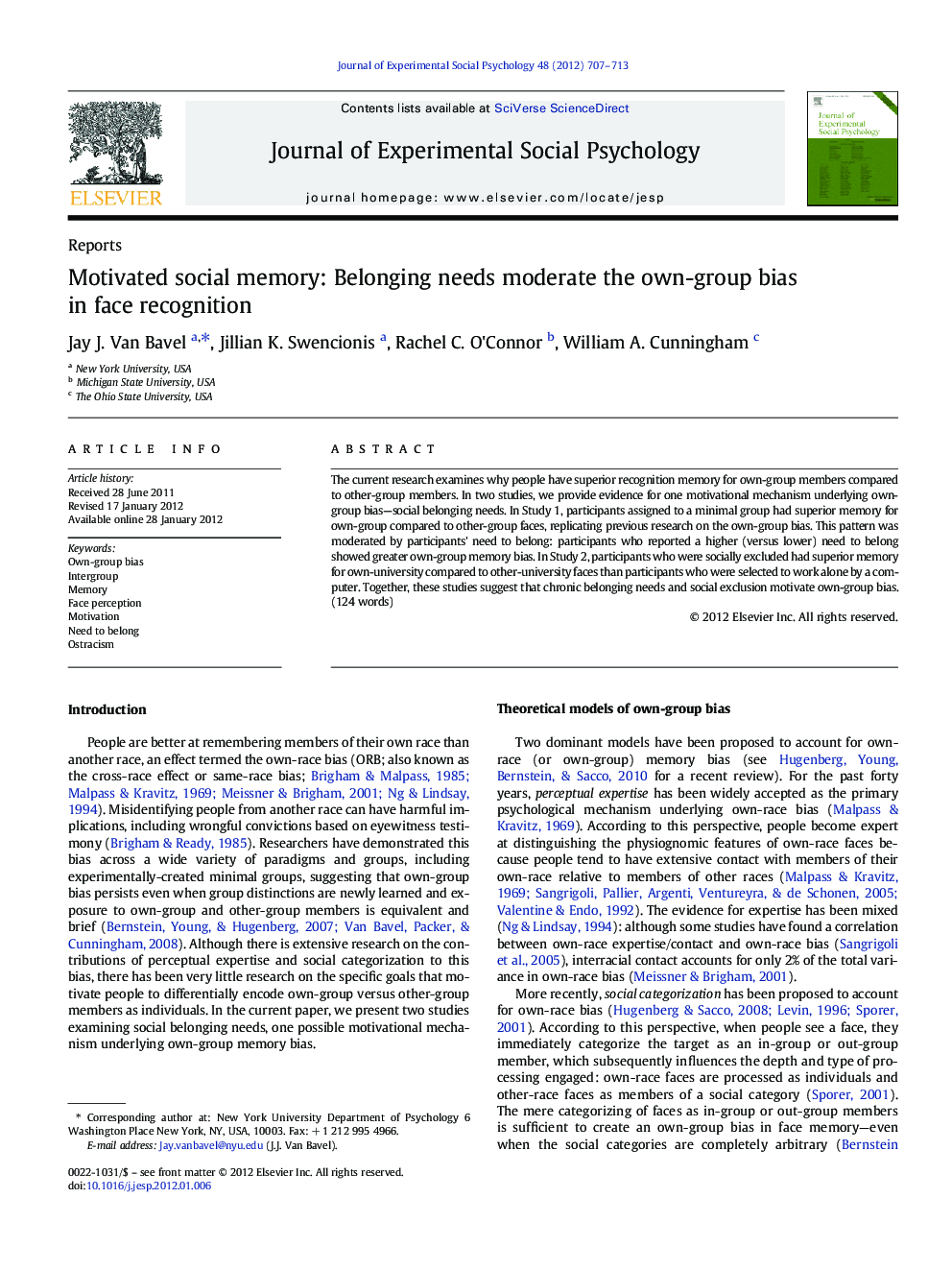| کد مقاله | کد نشریه | سال انتشار | مقاله انگلیسی | نسخه تمام متن |
|---|---|---|---|---|
| 948406 | 926465 | 2012 | 7 صفحه PDF | دانلود رایگان |

The current research examines why people have superior recognition memory for own-group members compared to other-group members. In two studies, we provide evidence for one motivational mechanism underlying own-group bias—social belonging needs. In Study 1, participants assigned to a minimal group had superior memory for own-group compared to other-group faces, replicating previous research on the own-group bias. This pattern was moderated by participants' need to belong: participants who reported a higher (versus lower) need to belong showed greater own-group memory bias. In Study 2, participants who were socially excluded had superior memory for own-university compared to other-university faces than participants who were selected to work alone by a computer. Together, these studies suggest that chronic belonging needs and social exclusion motivate own-group bias. (124 words)
► We show evidence of a motivational mechanism underlying own-group memory bias
► People with a high need to belong showed own-group memory bias.
► People with a low need to belong did not show own-group memory bias.
► This is true for both chronic and contextual belonging needs.
► We distinguish the need to belong from the mere absence of social contact.
Journal: Journal of Experimental Social Psychology - Volume 48, Issue 3, May 2012, Pages 707–713